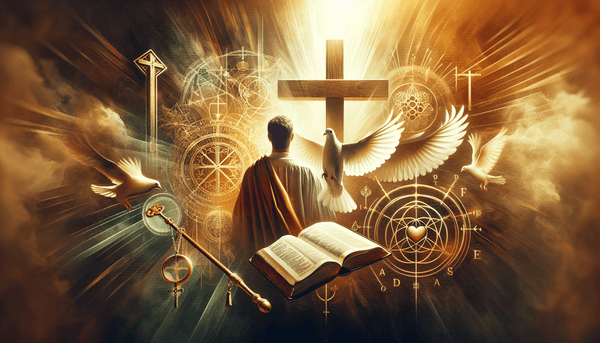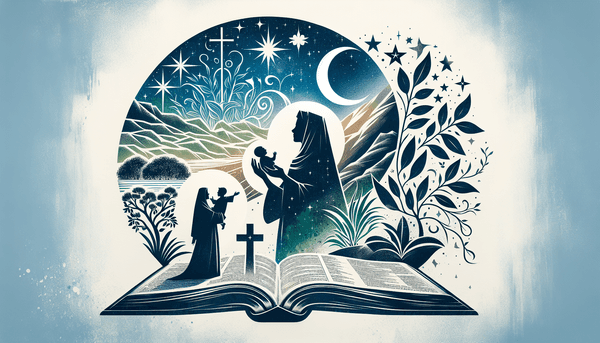Dinosaurs and the Bible
One of the most intriguing questions that arise when studying the Creation account is the existence of dinosaurs and whether they were part of the world God created. The Bible, particularly the book of Genesis, does not explicitly mention these ancient creatures, focusing instead on the creation of the world and the first humans. While some have speculated about references to creatures like Behemoth and Leviathan in the book of Job (Job 40:15-24, Job 41:1-34), which could be interpreted as dinosaurs or other large creatures, it remains a topic of discussion rather than clear biblical fact. The Genesis narrative invites us to marvel at the vastness and diversity of God's creation, as celebrated in Psalm 104:24-25, and to reflect on the mysteries that lie beyond our understanding, recognizing God's invisible qualities through the wonder of the natural world (Romans 1:20).
Conclusion
The Creation narrative, with its rich depth and symbolism, continues to fascinate and inspire those who study it. The biblical account offers profound insights into the relationship between the Creator and the created, inviting us to explore the significance of our own existence within this divinely orchestrated universe. As we reflect on these ancient texts, we are encouraged to seek a deeper understanding of our role as stewards of creation and the impact of our choices on the world around us. May this exploration of the Creation story serve as a starting point for further contemplation and discovery of the divine purpose woven throughout the tapestry of life.
FAQ
Q: Did God name each creature of the earth by names?
A: No, according to the book of Genesis in the Bible, it is written that God brought all the creatures He had made to Adam to see what he would name them, demonstrating God's authority over His creation and Adam's role in stewardship over the earth.
Q: Did Dinosaurs exist at the time when all creatures were made?
A: The Bible, particularly in the book of Genesis, does not explicitly mention dinosaurs. The topic of dinosaurs is not directly addressed in the Genesis account of creation, but many interpretations and discussions have emerged regarding their potential existence in relation to the biblical creation narrative.
Q: What do the seven days of Creation represent?
A: The seven days of Creation represent the time in which God brought the world and all living things into existence. Each day of Creation represents a specific act of creation by God, culminating in His rest on the seventh day.
Q: How old was the earth when first formed?
A: The Bible does not provide a specific age for the earth at its formation. The Genesis account focuses on the sequence of creation events rather than the precise timing or age of the earth.






